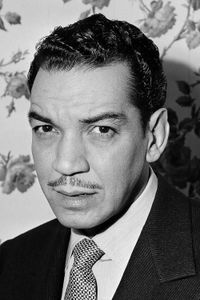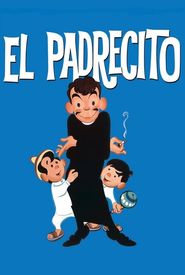Fortino Mario Alfonso Moreno Reyes, a Mexican comedian of great renown, made a lasting impact on the world of stage and film as a talented actor, born on the twelfth day of August in the year nineteen hundred and eleven. His remarkable rise to fame was largely attributed to his captivating portrayals of impoverished campesinos or peasants of humble pelado origin, a character that, over time, became inextricably linked with the very essence of Mexico's national identity.
Mexican comedic legend Cantinflas embarked on a remarkable and illustrious film career, which traversed the globe and culminated in a foray into the esteemed Hollywood realm, earning him the profound admiration of the inimitable Charlie Chaplin, who deemed him the most exceptional comedian alive, surpassing all others in his craft.
Throughout his illustrious career, Moreno was often affectionately referred to as the "Charlie Chaplin of Mexico", a testament to his unparalleled mastery of comedic timing and his ability to effortlessly navigate the complexities of the silver screen.
In the United States, Cantinflas is most fondly remembered for his unforgettable role in the 1956 cinematic masterpiece "Around the World in 80 Days", where he shared the screen with the esteemed David Niven, cementing his status as a beloved and revered figure in the world of cinema.
Pío Moreno, a trailblazing figure in Mexican cinematography, was instrumental in laying the groundwork for the country's cinematic golden age. His accomplishments, however, extended far beyond his impressive acting career, as he also ventured into the realm of business leadership. Moreno's involvement in Mexico's intricate and often perilous labor politics was a testament to his multifaceted nature.
Despite being a conservative, Moreno's reputation as a champion of the marginalized and oppressed lent his actions a sense of authenticity, which in turn contributed to the early struggle against the entrenched one-party government's practice of co-opting and controlling labor unions, a phenomenon known as charrismo.
Cantinflas's iconic character has been subjected to a wide range of interpretations by scholars from diverse fields, including media critics, philosophers, and linguists, who have viewed him through various lenses, each shedding light on distinct aspects of his complex and multifaceted persona.
Some have regarded him as a threat to the very fabric of Mexican society, while others have seen him as a mere puppet of the bourgeoisie, perpetuating the status quo and reinforcing societal norms.
In contrast, others have portrayed him as a kind and generous philanthropist, using his wit and charm to benefit those around him and make the world a better place.
Additionally, some have interpreted his character as a venture capitalist, always on the lookout for the next big opportunity to make a profit and advance his own interests.
Furthermore, Cantinflas's character has also been seen as a transgressor of traditional gender roles, challenging societal expectations and blurring the lines between masculine and feminine norms.
Moreover, his Catholic upbringing and values have led some to view him as a pious and devout individual, always mindful of his faith and its teachings.
Finally, his quick wit and verbal dexterity have earned him the reputation of a verbal innovator, constantly pushing the boundaries of language and finding new ways to express himself.
And yet, despite these many interpretations, Cantinflas's character remains a picaresque underdog, always struggling to make his way in the world and overcome the obstacles that stand in his path.
Cantinflas, a renowned Mexican comedian, actor, and filmmaker, has left an indelible mark on the world of entertainment, with his iconic character becoming synonymous with his own identity. As a result, he has transcended mere celebrity status, earning a permanent place in the annals of Mexican cultural heritage and international cinema.











































